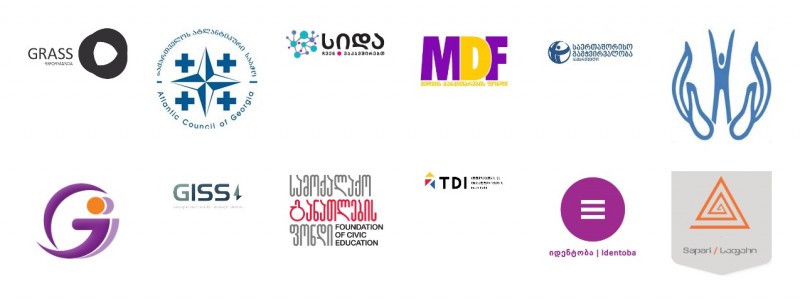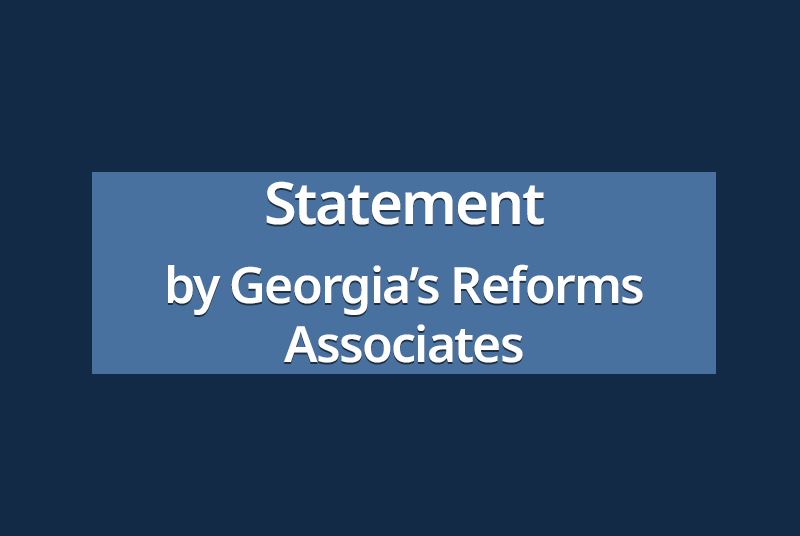Statement of the NGOs on the situation around Rustavi 2

10 October, 2015
0
We are addressing representatives of the diplomatic corpus accredited in Georgia and the relevant representatives of the EU, OSCE, Council of Europe and UN institutions on behalf of Georgian non-governmental organizations and civil society representatives to raise grave concern regarding the recent alarming developments over the freedom of the media in Georgia and continuous attacks and pressure from the Government on the independent commercial TV Channel Rustavi 2.
On August 5, 2015 and October 1, 2015 Tbilisi City Court issued orders effectively freezing all assets of Rustavi 2 and the company Sakartvelo LLC, which owns shares of Rustavi 2. Through these orders the Court seriously jeopardized Rustavi 2’s financial sustainability limiting its capacity to purchase programs, receive satellite and other services and rent out equipment, vehicles or any other property. Rustavi 2 was also banned from undertaking any financial commitments such as bank loans, issuing trade warrants, using bank guarantees or other financial instruments, causing major problem for the company’s cash liquidity. These financial constraints will likely cause major problems for the effective functioning of the TV channel.
We have followed carefully the court proceedings in the Tbilisi City Court. There are grounds to believe that Judge Tamaz Urtmelidze, assigned to this case, does not pass the test of impartiality. On October 12 it became known to Georgian public that there is an ongoing criminal investigation by the Prosecutor’s office against Judge Urtmelidze’s mother, which seriously increases the likelihood of him making politically biased decisions. Rustavi 2 has continuously asked to waive the judge but to no avail. We are far from satisfied with the explanation of the Prosecutor’s office which in the statement confirmed that charges against Judge’s mother were pressed in October 2015, while the incident occurred and investigation started in January 2014.
We are concerned that the legal case regarding the ownership of Rustavi 2 seems clearly politically motivated. There are several elements that point to this. First of all there are all grounds to believe that the claim is time barred, since under the requirements of the Georgian legislation, one year statute of limitation applies to transactions entered under duress, and all claims arising out of such disputes shall be time-barred after lapse of one year from the cessation of duress.
Secondly, it is clear that while applying the interim measures, limiting the financial viability of Rustavi 2, the judge failed to justify why the measures were proportional and necessary. Furthermore, no consideration has been given to public interest of ensuring freedom of media in a very sensitive pre-election period.
What further reinforces our concerns is the history of harassment of Rustavi 2 from the authorities. Already in 2012-13, representatives of the ruling coalition Georgian Dream, headed by Prime-Minister Bidzina Ivanishvili made numerous statements that Rustavi2 should be returned to its “real owners.” These statements were followed by the detention of Rustavi 2’s director Mr. Nika Gvaramia on absurd charges in the case concerning his activities in the law firm before joining Rustavi 2 (he was acquitted later), installation of illegal surveillance in the premises of Rustavi 2 (no investigation has been concluded yet), and public attacks on the editorial policy and independence of the Channel from MPs Manana Kobakhidze and Eka Beselia as well Prime Minister Irakli Gharibashvil amd informal leader of the coalition Mr. Bidzina Ivanishvili.
Georgian NGO’s and credible international organizations have regularly expressed their strong concern over these developments. We believe that in the period leading to the Parliamentary elections of 2016 it is crucial to maintain independent media, which provides access to all political parties and expresses critical opinion on the Government policies. These developments are especially worrisome against a background of deteriorating media environment in Georgia as a result of which several leading political talk shows have been recently closed on Imedi TV, Maestro TV and Georgian Public Broadcaster.
Worsening of democratic trends in Georgia has recently become a subject of criticism from a number of international institutions in light of politically motivated arrests, abusive application of pre-trial detention to keep political rivals behind the bars and highly polarized political environment. We would like to ring the alarm bell on these issues, since we don’t want the further deterioration of media freedom and democratic practices to become an obstacle for our country’s European integration process and stable development.
We therefore kindly ask the distinguished addressees of this appeal to raise these issues with the authorities of Georgia and to demand to stop the politically motivated attacks on Rustavi 2. It is essential for the democracy of Georgia to maintain media pluralism, political diversity and independence of judiciary, especially in the run up to the 2016 Parliamentary elections.
Signatures:
GRASS – Georgia’s Reforms Associates
TI – Transparency International
TDI – Tolerance and Diversity Institute
GDI – Georgia’s Democratic Initiative
MDF – Media Development Foundation
GISS – Georgian Institute for Strategic Studies
Media and Communication Educational and Research Centre
Center for Strategic Communication and Democracy
Atlantic Council of Georgia
Identoba
Sapari
Article 42 of the Constitution
Voice from Georgia
Baltic to Black Sea Alliance
CIDA – Civil Development Agency



